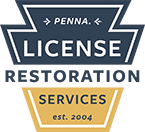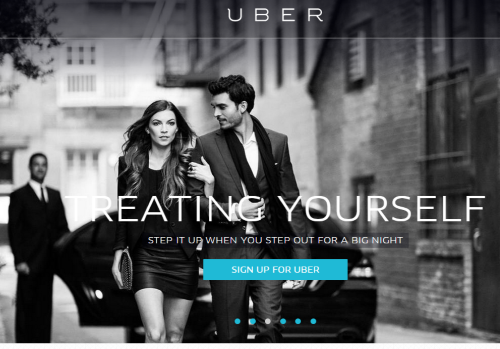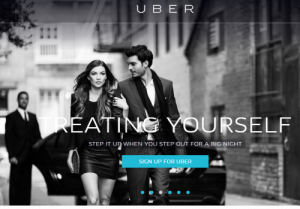The much heralded car service Uber has been approved by the Public Utility Commission (PUC) to operate throughout Pennsylvania…except in Philadelphia.
The service that matches drivers with riders willing to pay can be ordered through your phone or online. Rates, vehicles, pickup and destination are all negotiated within the app. The driver then picks you up in their vehicle and drives you to your destination…with no cash changing hands…all paid online.
For its part the PUC confirmed the requirements of valid driver’s license with proper insurance, background checks, and vehicle checks. Both Uber and the PUC are vested in ensuring a safe and hassle free experience.
Apparently there are a number of options for vehicles and prices through the Uber service. You can select standard personal vehicles, black car service, or specialty transportation.
The other interesting note is the pressure on Philadelphia to approve or deny the operation of these type of services. Philly operates under the direction of the Parking Authority who have opposed Uber and other ride sharing services in an effort to protect the licensed taxi and limousine services who pay truckloads of money to operate in the city. The PPA may now feel enough pressure to find a way to allow these services. Probably not.
From the Pennsylvania Public Utility Commission – The PUC funds an authorized complement of 520 employees, including attorneys, rate and service analysts, auditors, economists, engineers, motor transit and railroad specialists, communications specialists, safety inspectors and enforcement investigators. They work, together with administrative, fiscal, computer and clerical personnel in 12 offices and bureaus that report to an Executive Director.
The PUC is funded by assessment of the regulated public utilities. Subject to budget approval, the PUC may assess utilities up to three-tenths of one percent of gross intrastate revenue to cover the cost of regulation. All assessments are paid into the General Fund of the State Treasury through the Department of Revenue for use solely by the Commission. The budget for Fiscal Year 2014-15 is $64,571,000 in state funds and $3,785,000 in federal funds, for a total of $68,356,000.
The Public Utility Commission was created by the Pennsylvania Legislative Act of March 31, 1937 (and the Public Utility Law of May 28, 1937), which abolished the Public Service Commission.
The PUC has 12 offices and bureaus reporting to an Executive Director, with its headquarters in Harrisburg. Regional offices are located in Altoona, Philadelphia, Pittsburgh and Scranton. The regional offices serve as administrative coordinating points for enforcement officers and administrative law judges. The Philadelphia office also has employees from the PUC’s Bureau of Consumer Services.
Learn more about the Bureaus and Offices of PUC here.
Mission Statement: The Pennsylvania Public Utility Commission balances the needs of consumers and utilities; ensures safe and reliable utility service at reasonable rates; protects the public interest; educates consumers to make independent and informed utility choices; furthers economic development; and fosters new technologies and competitive markets in an environmentally sound manner.
From Uber – Uber is evolving the way the world moves. By seamlessly connecting riders to drivers through our apps, we make cities more accessible, opening up more possibilities for riders and more business for drivers. From our founding in 2009 to our launches in over 200 cities today, Uber’s rapidly expanding global presence continues to bring people and their cities closer.



